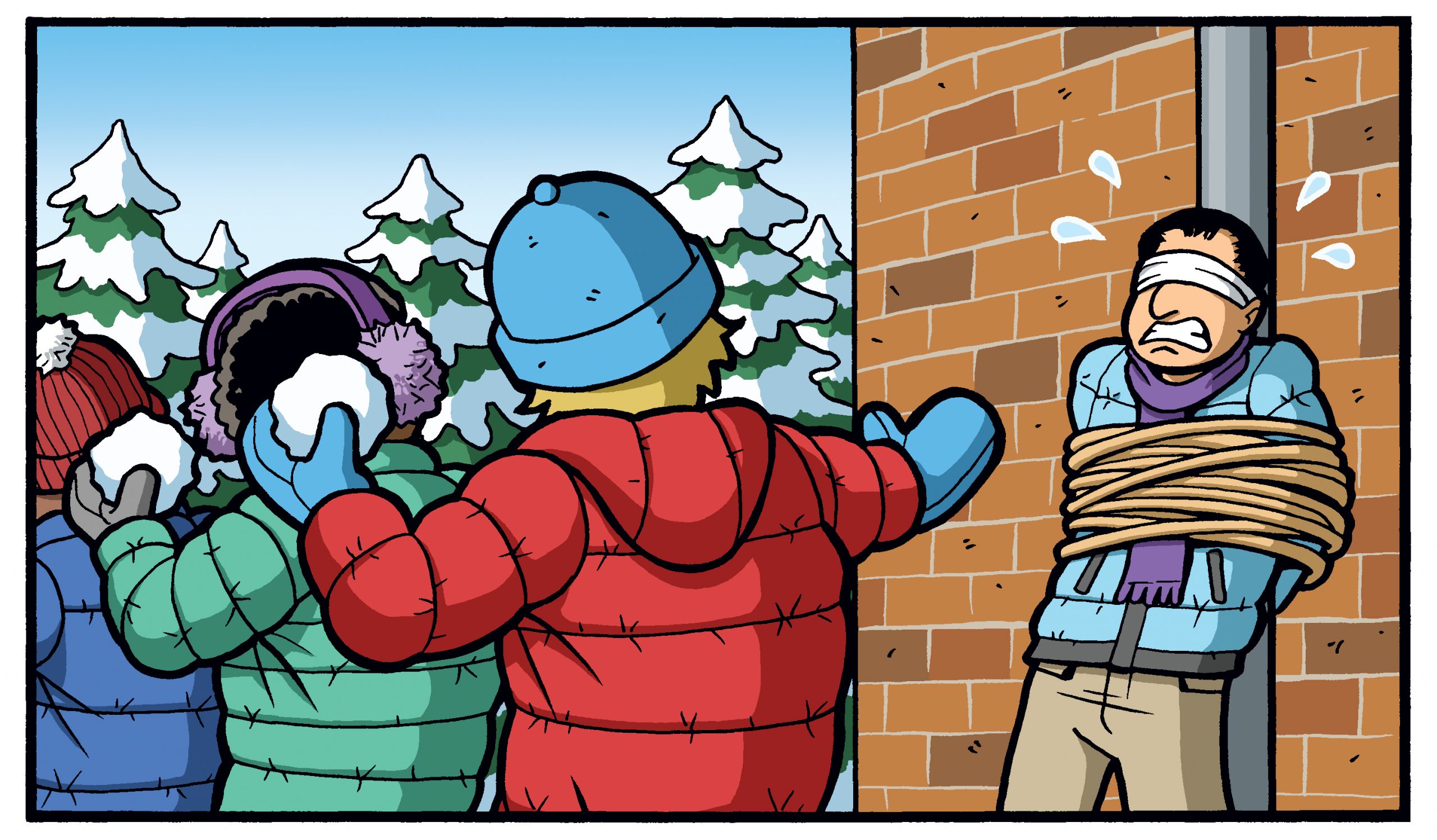It’s difficult to eat 28 cherry-flavored Popsicles in one hour, and Popsicles are one of my top 10 favorite foods. But 28 Popsicles in a single hour is a lot of Popsicle. You get through the first five or even 10 and you think you’re doing okay, but then this frozen ball of ice, artificial flavoring, and regret forms in your stomach. The average Popsicle is four to six ounces. If you do the math, 28 Popsicles equals about 150 fluid ounces.
To put that in perspective, your stomach can hold about 32 fluid ounces at one time comfortably. So it’s a lot of Popsicle.The only reason I enjoy eating 28 Popsicles in so short a time is because while I’m eating them, I’m being watched by 28 students who have no Popsicles at all.
This is how I run my classroom. It’s based entirely upon a competition. My students are divided into three teams, and they compete each week for points based upon effort, cooperation, kindness, and focus. At the end of the week, one team is declared a winner and receives a prize. But there is a second competition layered on top of the first, and it’s a competition against me. I set a goal at the beginning of the week – a set number of points – and after determining which team has won the weekly contest, we add up the points of all three teams. If the total meets or exceeds the goal that I have set at the beginning of the week, the students win.
The system works beautifully, because rather than the teams attempting to beat one another, they become hyper-focused on defeating me. I am the bad guy. The adversary. And I play the role brilliantly because I am the kind of man who will eat 28 Popsicles in front of a class of students who have none. This cruelty extends to all my prizes.
If the prize is extra recess and I win, I play kickball with children from another class while my students sit on the curb and watch. One year, I played kickball with their parents while the class watched. And because I set the goal and I assign the points, I have complete and total control of the game. I win a lot.
It sounds cruel – and to a degree it is – but my students also love the competition. They find it hilarious and highly engaging. They remember these competitions with great fondness years later. I also know that students must occasionally win or the game would no longer matter to them. I need to throw the occasional bone. About 10 years ago, after having won 14 weeks in a row, I decided that it was finally time to let my students win. And because more than three months had passed since a student victory, I told the kids that the winner could throw snowballs at the loser.
My students had their best week ever. They worked harder than ever before. At the end of the week, we totaled their points, and they had met their target. They had won. Now I would become their new target. We chose six kids to throw the snowballs while the rest of the class watched. Immediately after recess, I stood up against the brick wall – firing squad style – and prepared to receive my punishment.This is when things went south.
During recess, the kids had prepared an arsenal of ice balls. A veritable ammo dump of hardened pellets. And they buried their ammunition in the snow, so there was a shallow trench of hidden ice balls directly in front of them.
They were ready. The rule was that they had a minute to throw, and they could not throw at my head, but these children had no intention of ever throwing at my head. They were aiming for a far more sensitive part of my anatomy. When the first ice ball hit, I doubled over, thinking, “That is not a snowball.”
Then they hit me again, and I was on the ground, writhing in pain, thinking, “Thank God I’m on the ground. Now it will stop.”But it didn’t.I had a student teacher taking pictures that day. I told him it was going to be legendary, which it was but for all the wrong reasons. As the children pelted me with their ice balls, he continued to take pictures, never stepping in to protect me.
When the timer went off, the children stopped as instructed. I was in a lot of pain. I looked up at them and said, “What were you thinking? I’m the teacher.”They didn’t say a word. They didn’t have to. I knew. They had learned from the best, and when given the chance, they gave their best in return.
So I didn’t punish them. Instead, I admired them. Tipped my cap to them. Rarely have I respected children more than on that day.
Matthew Dicks is a West Hartford elementary schoolteacher and author of the new novel, The Perfect Comeback of Caroline Jacobs, as well as Memoirs of an Imaginary Friend, Something Missing, and Unexpectedly, Milo, which have been translated into 25 languages worldwide. For more about Matthew, go to www.matthewdicks.com.
Sean Wang, a MIT architecture graduate, is author of the sci-fi graphic novel series, Runners. Illustrated by Sean Wang. For more about Sean, go to www.seanwang.com






More Stories
Skin Deep
Sweet Indulgences
Creative Entrepreneurs